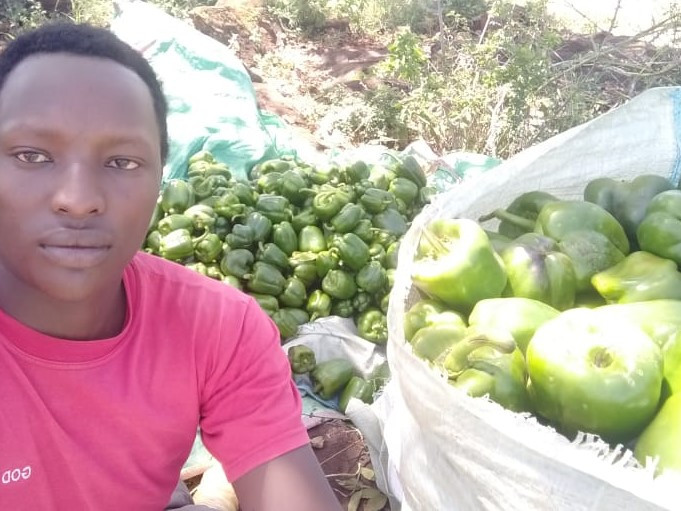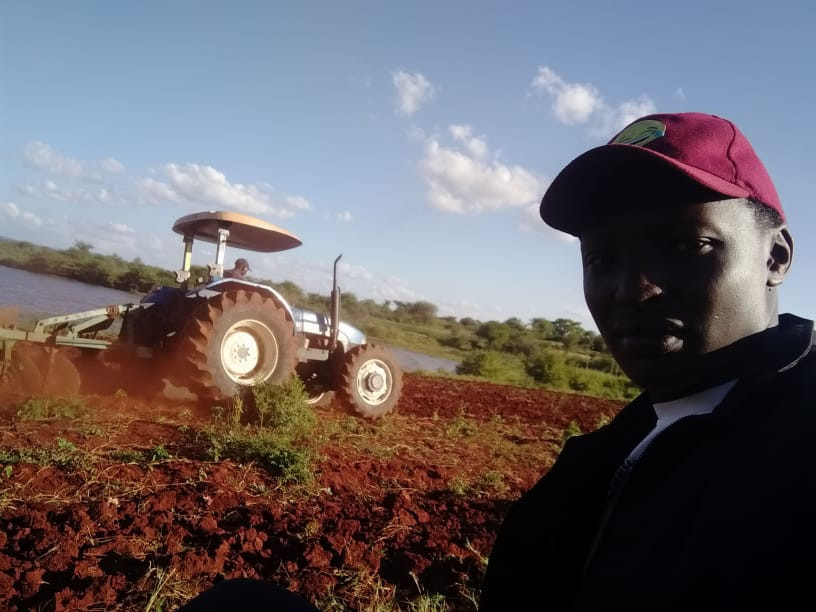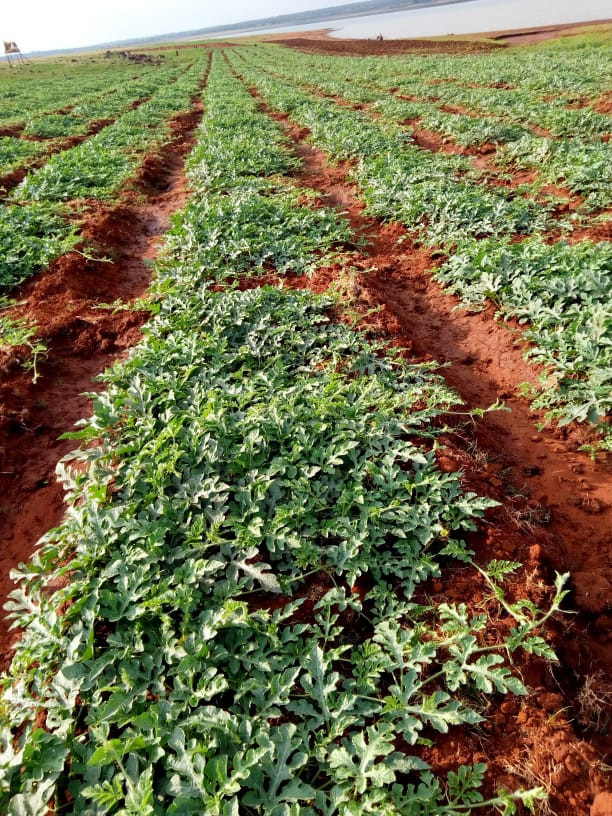Mwaura wa Gitau has amassed some good knowledge on capsicums and watermelons, and this is because he has been farming for some time.
The primary school teacher has gained experience in growing the crops - from planting to marketing - that he says he can successfully mentor anyone who wants to get into the business.
"I am a teacher by profession but I have a passion in farming. I come from Gatundu in Kiambu County but was posted in Ekalakala in Masinga, Machakos County. When I settled here in June 2017, tried other business but failed before I saw a farming opportunity and grabbed it," Mwaura says.
Besides capsicums and watermelons, the 24-year-old grows a variety of vegetables and tomatoes, all on five acres he has leased.
"Having been brought up in a farming family, my dream life was to farm and make money. When I settled in Masinga as a teacher last year, I saw the opportunity to grow vegetables and fruits because this area has a warm weather and water is available from Masinga Dam," says Mwaura, who leased the land at Sh8,000 per acre.
His capital was from his salary and a top up from a loan. “The money went to leasing the land, preparing it for planting and buying inputs.”
Capsicums and watermelons have been his main crops. “I added watermelons recently and my target from the crop which sit on 2.5 acres is Sh100,000 or more if the harvest is good. I am targeting to harvest 30,000kg of watermelons and 125 - 150 crates per acre . Prices for the latter range from Sh15 to Sh30 per kilo of melons, Sh 20 and above for capsicum and from Sh2,000 to Sh8,000 per crate of tomatoes," Mwaura says, noting besides having stable workers, he plans his next day farm activities after school work.
In future, he wants to have six acres of capsicums and tomatoes every single time of the year at various stages of growth so that he can earn income throughout.
While horticulture farming is a lucrative business in Kenya, challenges for many farmers come during marketing, with brokers taking advantage of the situation to fleece farmers.
Before Covid-19 outbreak, brokers used to flock his farm but the partial lockdown of Nairobi changed the situation. Mwaura, who says he has spent his time during the pandemic to better his farm, is overcoming the challenge by using online marketplaces, in particular Mkulima Young, which has helped him cut off brokers.
“I used mainly to buy electronics from online platforms, then it occurred to me that I can also use them to sell my produce. I choose Mkulima Young to sell my farm products and I don’t regret because once I post, I wait for calls then we seal the deal," says Mwaura, who has one permanent worker and employs tens of others on need basis. He adds that the other benefits of Mkulima Young is being able to market your products in advance while they are still growing.
His goal is to run a smart farm that can employ more than 100 workers and use green energy, like biogas and modern technologies in its operations.
His advice to young people is to always support each other through creating synergies.
"Though I have never attended any farming training, I always visit other farmers to sharpen my knowledge. I also seek guidance from agronomists," says Mwaura.
He adds that growing capsicums and watermelons requires meticulous planning, getting it right with farm chemicals and fertilisers.
“If you miss one thing, you can harvest huge losses that can bring you down easily. You need to check the plants daily for pests and have a reliable supply of water.”
You need Mwaura’ contacts? Click here
Join Mkulima Young Fraternity by clicking here. Its FREE



